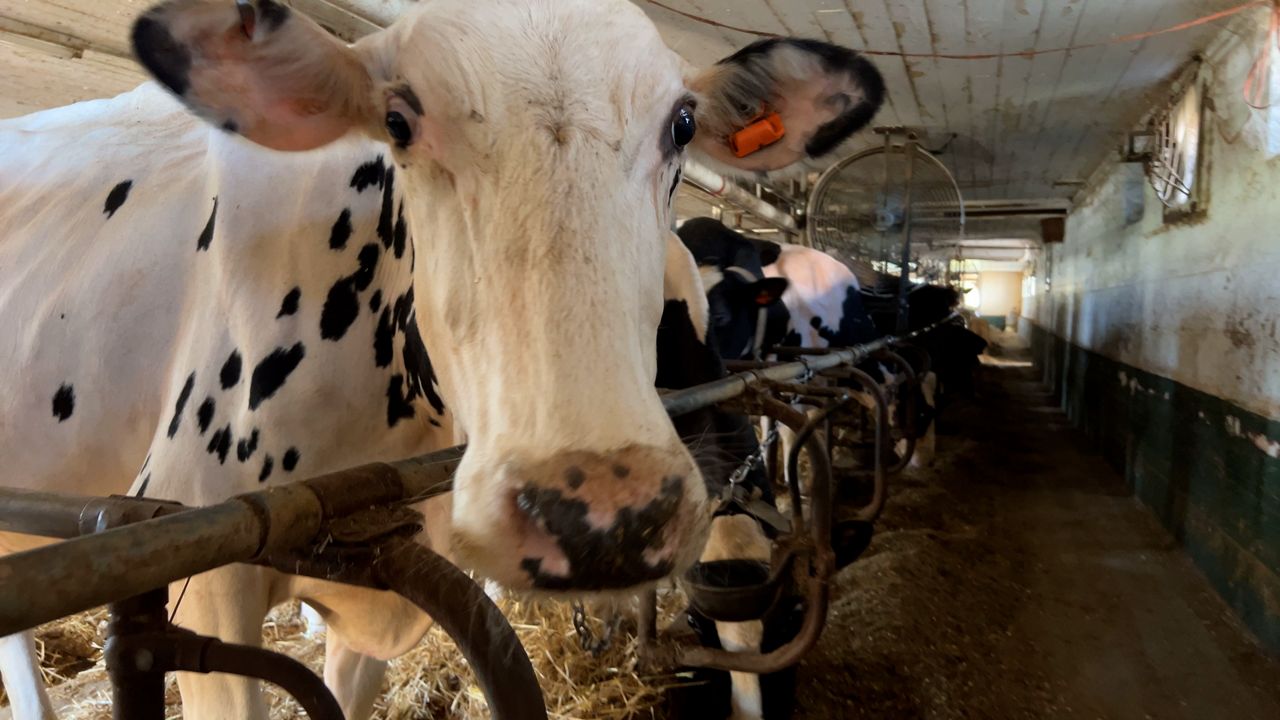FRANKFORT, Ky. — Another case of a potentially dangerous disease of cattle has been detected in Kentucky, according to Kentucky State Veterinarian Dr. Katie Flynn.
The disease, Theileria Orientalis Ikedia, is known to be carried by the Asian Longhorned tick. It was detected in a 12-year-old beef cow in Barren County.
“Protecting the health of our livestock is a top priority of the Kentucky Department of Agriculture and the Office of the State Veterinarian,” Agriculture Commissioner Dr. Ryan Quarles said. “We are working closely with agriculture producers to protect our herds across the state, and contain these cases.”
This makes the second confirmed case of the tick-born illness in the state. The first was a bull in Fleming County that fell ill and died in August. Around the same time, it was reported that another bull in Hart County also died from Theileria, but a retest of the bull’s blood was negative for the disease.
Theileria is a tickborne protozoa that infects red and white blood cells causing severe anemia in cattle as well as abortions, stillbirths, weakness, reluctance to walk and death.
In the latest case, the cow did not die. However, once an animal is infected with the disease, it becomes a carrier and can infect other cattle. There is no approved effective treatment or vaccine for the disease, which makes prevention imperative.
Though a grave threat to cattle, the disease is not a threat to human health. Humans cannot become sick from contact with affected cattle, and consuming meat from affected cattle is safe, provided that the meat has been cooked to an appropriate temperature.
The Asian Longhorned Tick has been found to be a primary carrier for this disease. The tick has been found to attach to livestock, wildlife, dogs, cats, birds, and humans.
In partnership with the University of Kentucky, Tick Laboratory, University of Kentucky Veterinary Diagnostic Laboratory, Murray State University Breathitt Veterinary Center, and Virginia-Maryland College of Veterinary Medicine Diagnostic Laboratory, the Office of the State Veterinarian is coordinating a passive surveillance system of tick and blood samples from cattle with clinical signs to help identify the presence of the Asian Longhorned Tick and Theileria orientalis Ikeda in Kentucky.
The Office of the State Veterinarian has also created an alert flyer for cattle owners and coordinated no cost testing of blood for Theileria. Information gathered from these tests is being used to create maps that depict the spread of the disease across Kentucky.



